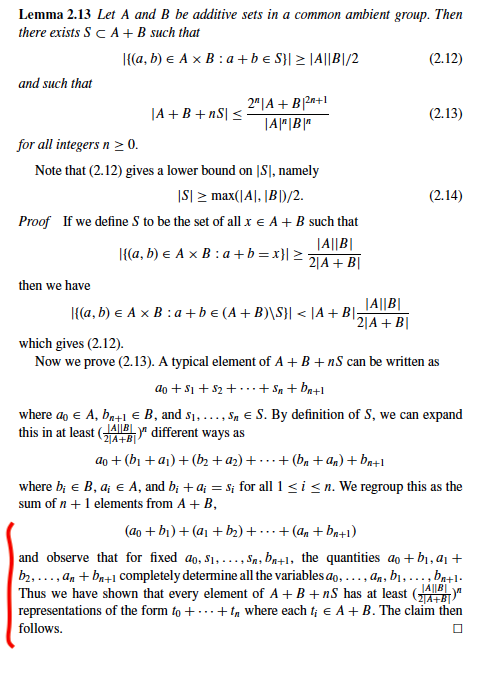I am reading Tao-Vu book on Additive combinatorics and came across the following lemma. I know that it is better to ask this question on MathStack but I asked few questions before and no one answered yet and so I've decided to ask it here.
I understood most of the proof but I am slightly confused with the last part and how they obtained an upper bound in $(2.13)$? Can anyone explain it in a more detailed way please?
Thanks a lot!

